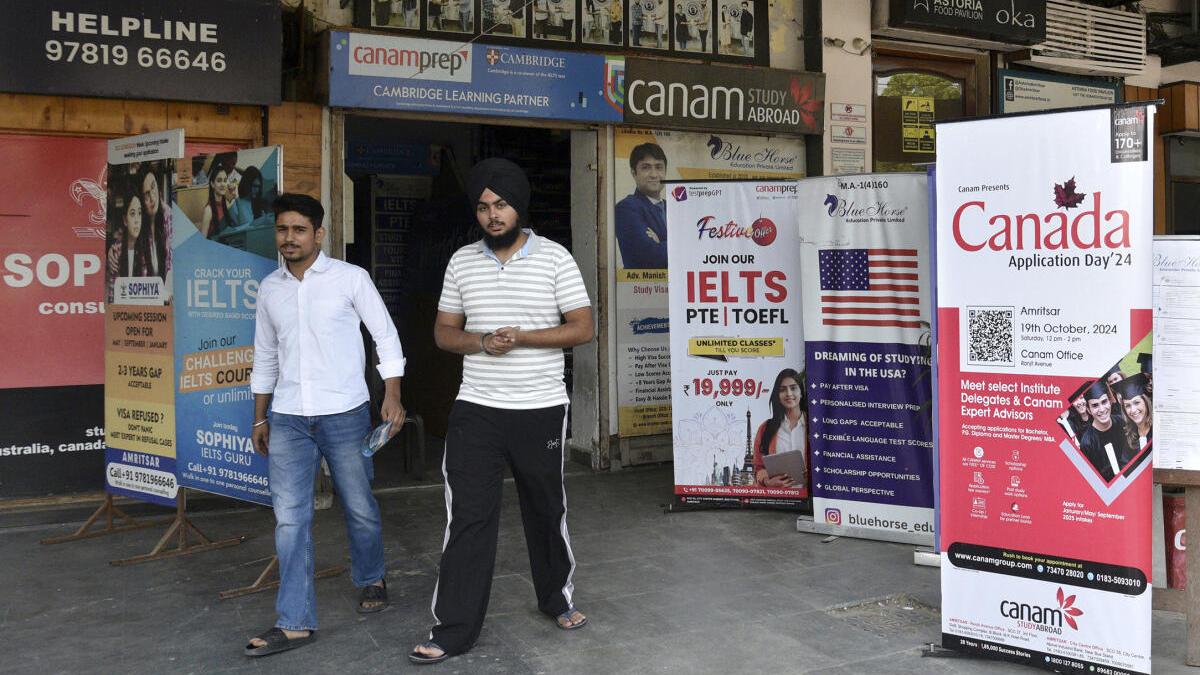The government of Canada announced ‘Regulations Amending the Immigration and Refugee Protection Regulations’, on January 31, 2025. These new immigration rules indicate stricter visa regulations, rigorous work permit requirements, and increased enforcement against expired visas. International students will have to deal with reduced study permits, so students going to Canada must do due diligence to secure their future.
Dr. Jayanthy Ramakrishnan, admissions head, Galvanize Global Education says that temporary foreign workers or graduated international students will have to deal with stricter work visa or renewal policies. There will also be fewer job opportunities. If applicants fail to follow the visa conditions, the likelihood of permit cancellations is higher at the visa and even at the port of entry.
The new immigration rules come after a set of developments that raised questions about the future of Indian students seeking opportunities in Canada. The diplomatic relations between Canada and India have been under strain. Last November, the Canadian government announced the discontinuation of the Canadian Study Direct Stream (SDS) visa. It was a streamlined pathway designed to expedite the study permit application process for Indian students.
In 2022, India accounted for over 21% of all international students in Canada, with a staggering number of 222,450 Indian students choosing to study in Canadian institutions. Over 189,000 Indian students opted for the SDS visa that year, which significantly simplified their application process. For instance, while non-SDS applicants had an approval rate of 19 percent, SDS applicants enjoyed a 63 percent approval rate.
Impact of new immigration rules on students
Ms. Ramakrishnan says that international students will have to deal with reduced study permits. Visa applications will be scrutinised more, so the documents submitted must be accurate and current.
It is important that students follow the rules completely, not indulge in any illegal activities, or provide false information, and obey the regulations stipulated for a student visa. “For example, international students can currently work up to 24 hours per week off campus. Exceeding this limit will lead to permit cancellation”, says Ms. Ramakrishnan.
Ms. Ramakrishnan says that the Designated Learning Institute must regularly report on student compliance with immigration services. Failure to do that may result in suspending the University’s rights to enroll international students. It may also affect the current international students.
For students arriving on eTA
The regulatory amendments make a foreign national ineligible to hold an Electronic Travel Authorization (eTA) if an officer has reasonable grounds to believe that the holder will not leave Canada by the end of their authorised stay
Ms. Ramakrishnan says that this could happen to students who arrive from visa-exempt countries and plan to attend a short-term course without a study permit. Normally short-term courses are less than six months. If a student arrives on an eTA and plans to transition to a study permit and for any reason if the eTA is cancelled, then this could cause problems with the study permit as well.
Ms. Ramakrishnan says that the risk of this cancellation can be mitigated by showing financial ability to pay for your course, stay, and travel. This will imply that one will not need to work more than the stipulated 24 hours per week to meet their financial obligations. It is important to maintain consistent and clean travel and immigration histories. It also helps to demonstrate strong ties to your home country
What happens if a student is asked to leave in the middle of their degree?
Ms. Ramakrishnan says that most universities have a refund policy for tuition fees if students withdraw from a course by the withdrawal deadline. One may receive a partial refund. If a student withdraws from a course after the withdrawal deadline, they may have to forfeit the whole tuition fee
Ms. Ramakrishnan says some universities may relax these rules in extenuating circumstances like visa cancellation. Students in such circumstances, should first check with the international office in their university. Other payments like housing fee deposits, health insurance will all depend on the refund policies imposed by those vendors. In each case, some amount may be refundable.
Job opportunities for Indian students in Canada
Last December, The Hindu conducted a webinar about job opportunities for Indian students in Canada. It featured experts such as Migration Expert, Dr. Binod Khadria, and Ms. Ramakrishnan. The webinar was moderated by the Diplomatic Affairs Editor, The Hindu, Suhasini Haidar. They discussed the implications of strained relations on educational opportunities for Indians in Canada.
Both the panellists highlighted that despite ongoing tensions, Canada’s need for skilled foreign labour remains critical. They noted that while pathways may be narrowing due to political factors and housing shortages affecting student populations in major cities like Toronto and Vancouver, there is still room for genuine candidates who meet entry requirements.
The panelists emphasized the importance of thorough research when selecting universities and programs. With increased scrutiny on applications following changes to visa policies, they advised prospective students to focus on well-established institutions with robust support systems. It was also noted that various fields such as Engineering and Healthcare continue to demand skilled graduates.
Furthermore, Dr. Khadria pointed out that this period might serve as a temporary setback rather than a permanent barrier against Indian migration to Canada. The long-term benefits derived from international education remain strong motivators for many students despite geopolitical uncertainties.
As concerns surrounding safety arise amid reports of rising crime affecting Indian nationals in Canada, experts urge potential applicants to remain vigilant but not deterred from pursuing their dreams abroad.
The webinar encouraged prospective students to keep options open across multiple countries while remaining prepared for unforeseen changes in immigration policies.
Published – March 01, 2025 06:28 pm IST
